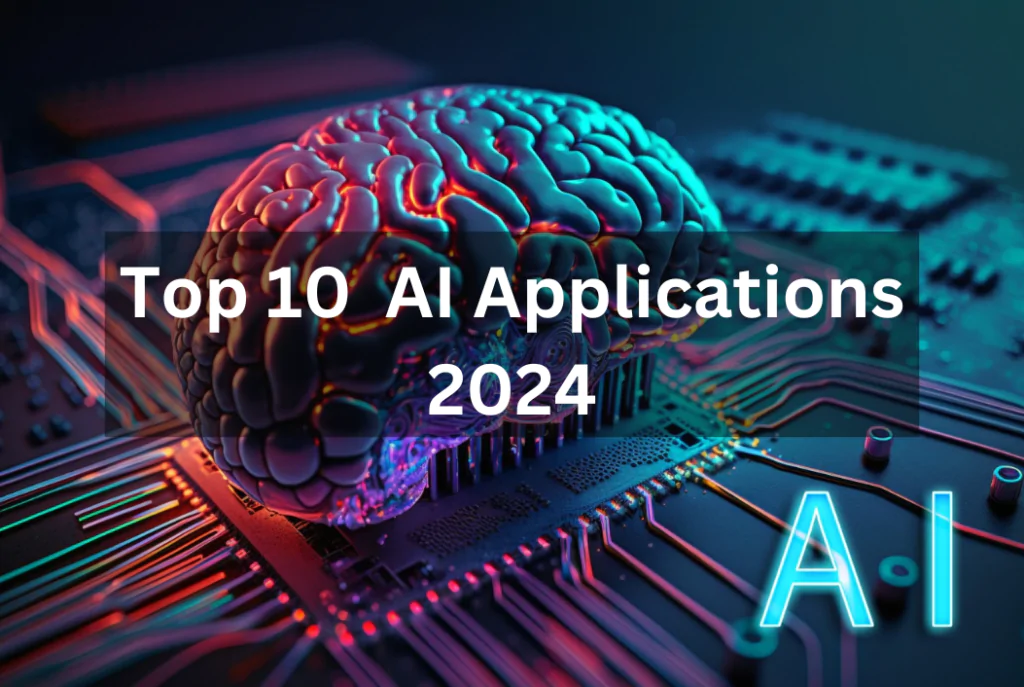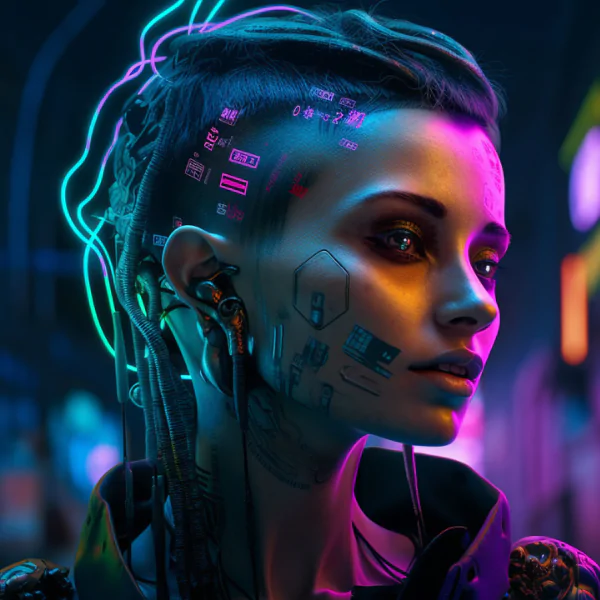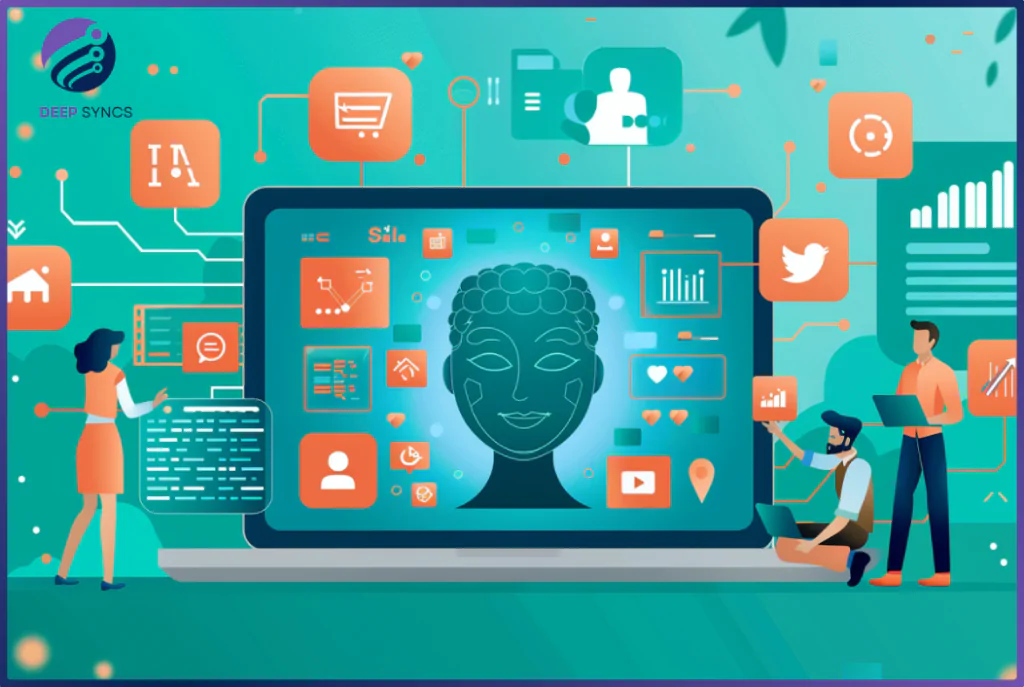The Top 10 AI Applications are expected to revolutionize various industries. These applications are anticipated to bring advancements in fields such as health, education, virtual reality, and E-Commerce. With their innovative features and capabilities, these applications have the potential to reshape how we work, communicate, and interact in the future.
1. Healthcare Innovation through Artificial Intelligence
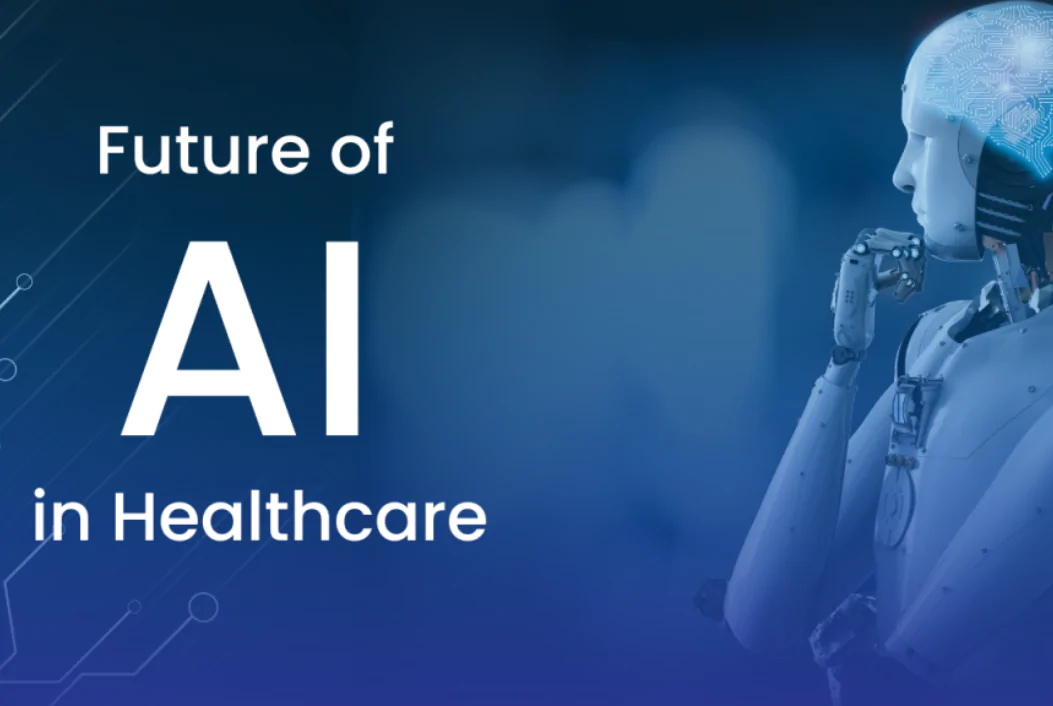
In the realm of healthcare, artificial intelligence is poised to revolutionize the industry in 2024. Through cutting-edge technology, AI applications help in early disease detection, enabling prompt intervention and treatment. Personalized medicine tailors medical decisions and practices to individual characteristics, optimizing patient outcomes. Additionally, remote patient monitoring ensures continuous care and real-time data tracking, enhancing overall healthcare delivery.
- Early Disease Detection
Early disease detection involves the use of advanced technologies, including AI and machine learning, to analyze vast amounts of medical data such as genetic information, patient history, and diagnostic tests. By identifying subtle patterns and markers, AI algorithms can help healthcare professionals detect diseases at their earliest stages when treatment is most effective. This proactive approach not only improves patient outcomes but also reduces healthcare costs by avoiding more extensive treatments or hospitalizations.
- Personalized Medicine
Personalized medicine tailors healthcare interventions, such as treatment plans and medication prescriptions, to individual patients based on their unique genetic makeup, lifestyle, and environmental factors. AI plays a crucial role in personalized medicine by analyzing complex data sets to predict how patients will respond to specific treatments, identify genetic predispositions to diseases, and recommend the most effective interventions. This approach improves treatment efficacy, minimizes adverse effects, and enhances overall patient satisfaction.
- Remote Patient Monitoring
Remote patient monitoring enables healthcare providers to track patients’ health status and vital signs from a distance, often using wearable devices or mobile health applications. AI technology facilitates continuous data monitoring and analysis, alerting healthcare professionals to any deviations from normal parameters or warning signs of potential health problems. By allowing for early intervention and timely adjustments to treatment plans, remote patient monitoring enhances patient safety, reduces the need for hospital visits, and improves overall healthcare outcomes.
Learn more about AI Healthcare
2. Revolutionizing Transportation with AI
The transportation sector is undergoing a significant transformation with AI applications in 2024. Autonomous vehicles are at the forefront, reshaping the way we commute and travel. Traffic optimization algorithms streamline road networks, reducing congestion and improving commute times. The integration of AI in smart cities enhances efficiency and sustainability, creating more livable urban spaces.
- Autonomous Vehicles: Autonomous vehicles, or self-driving cars, utilize advanced technologies such as sensors, cameras, and artificial intelligence to navigate roads and make driving decisions without human intervention. These vehicles have the potential to revolutionize transportation by improving safety, reducing traffic congestion, and increasing accessibility, particularly for people with disabilities or limited mobility.
- Traffic Optimization: Traffic optimization involves the use of data analytics, machine learning, and smart algorithms to manage and improve the flow of traffic on roads and highways. By analyzing real-time traffic data, optimizing traffic signal timings, and implementing dynamic routing strategies, traffic optimization systems aim to minimize congestion, reduce travel times, and enhance overall transportation efficiency.
- Smart Cities Integration: Smart cities integration involves the deployment of interconnected technologies and data-driven solutions to enhance the quality of life, sustainability, and efficiency of urban environments. Through the integration of Internet of Things (IoT) devices, sensors, and AI-powered systems, smart cities can optimize energy usage, improve transportation networks, enhance public safety, and provide innovative services to residents, businesses, and governments.
3. AI in Education: A Transformative Approach
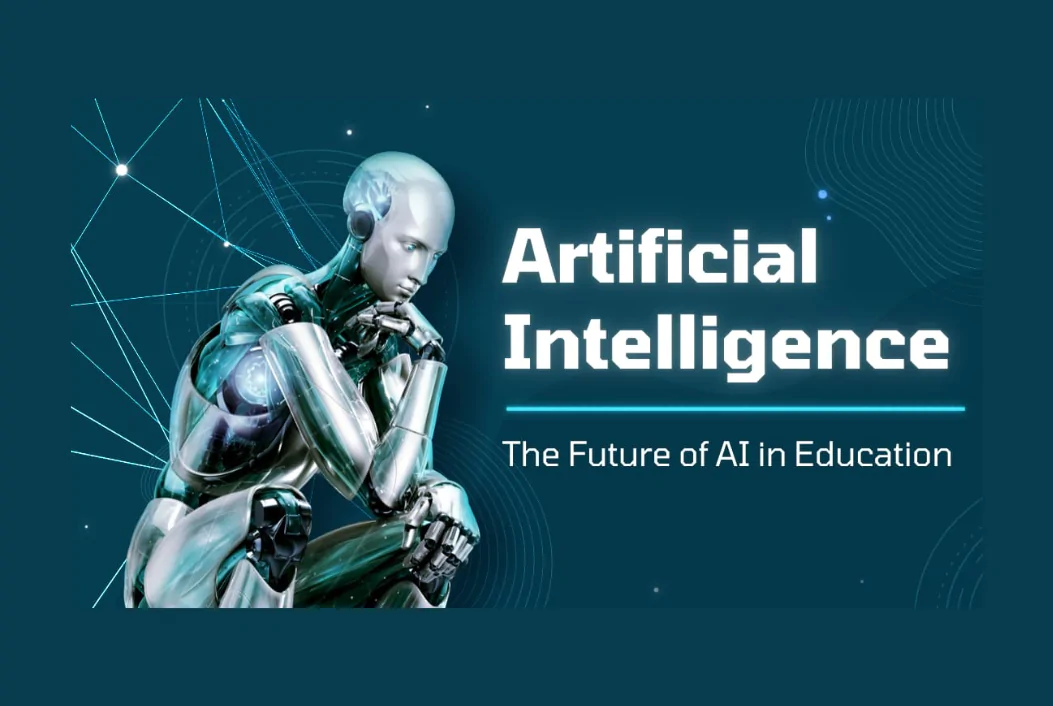
In the field of education, AI brings a transformative approach in 2024. Adaptive learning platforms personalize educational experiences, catering to individual learning styles and paces. Student performance prediction models identify at-risk students early on, enabling timely interventions to enhance academic success. Virtual teaching assistants provide support to educators, facilitating interactive and engaging learning environments.
- Creating Smart Content
Artificial Intelligence can be used to create digital versions of textbook guides, conferences, and video lectures. With customization, we can use various interfaces, such as animations and educational materials, for students in various grade levels.
Artificial intelligence generates and provides audio and video summaries and comprehensive lesson plans, which contribute to the creation of a rich learning environment.
- Voice Assistants
Through Voice Assistants, students can access additional learning resources or support even in the absence of direct teacher or lecturer involvement. This reduces the expense of printing temporary handbooks and makes it simple to find answers to frequently asked queries.
- Personalized Learning
Top AI technologies enable the easy generation of habits, lesson plans, reminders, study guides, flash notes, frequency or revision, and other features, as well as the thorough monitoring of students’ data through hyper-personalization techniques.
4. Enhancing Customer Experience with Artificial Intelligence
Businesses are leveraging AI to enhance customer experience in 2024. Chatbots offer instant support round the clock, resolving queries and concerns efficiently. Personalized product recommendations based on AI algorithms cater to individual preferences and behaviors, improving customer satisfaction and loyalty. Voice recognition technology streamlines interactions, making customer experiences seamless and intuitive.
- Chatbots for Instant Support: Chatbots are AI-powered virtual assistants designed to engage in conversation with users, providing instant support and assistance. Integrated into websites, messaging apps, and customer service platforms, chatbots can answer common queries, troubleshoot issues, and guide users through processes, offering efficient and accessible customer support around the clock.
- Personalized Product Recommendations: Personalized product recommendations leverage data analytics and machine learning algorithms to analyze user behavior, preferences, and purchase history. By understanding individual customer preferences, these systems suggest products and services tailored to each user’s interests and needs, enhancing the shopping experience, increasing engagement, and driving sales.
- Voice Recognition Technology: Voice recognition technology enables computers and devices to interpret and understand spoken language commands. Using advanced algorithms and natural language processing techniques, these systems can accurately transcribe speech, recognize individual voices, and execute commands, facilitating hands-free interaction with devices such as smartphones, smart speakers, and automotive infotainment systems.
5. Applications of Artificial Intelligence in Human Resource
Top AI technologies enable the easy generation of habits, lesson plans, reminders, study guides, flash notes, frequency or revision, and other features, as well as the thorough monitoring of students’ data through hyper-personalization techniques.
6. AI in Cybersecurity: Protecting Digital Ecosystems
- Threat Detection and Prevention
- Behavioral Analysis
- Fraud Identification and Prevention
In cybersecurity, AI plays a crucial role in safeguarding digital ecosystems in 2024. Threat detection and prevention systems powered by AI algorithms identify and neutralize security threats in real time, ensuring robust protection against cyber attacks. Behavioral analysis detects anomalies and suspicious activities, enhancing proactive security measures. AI-driven fraud identification and prevention mechanisms secure online transactions and data, fortifying digital defenses.
7. AI Application in E-Commerce
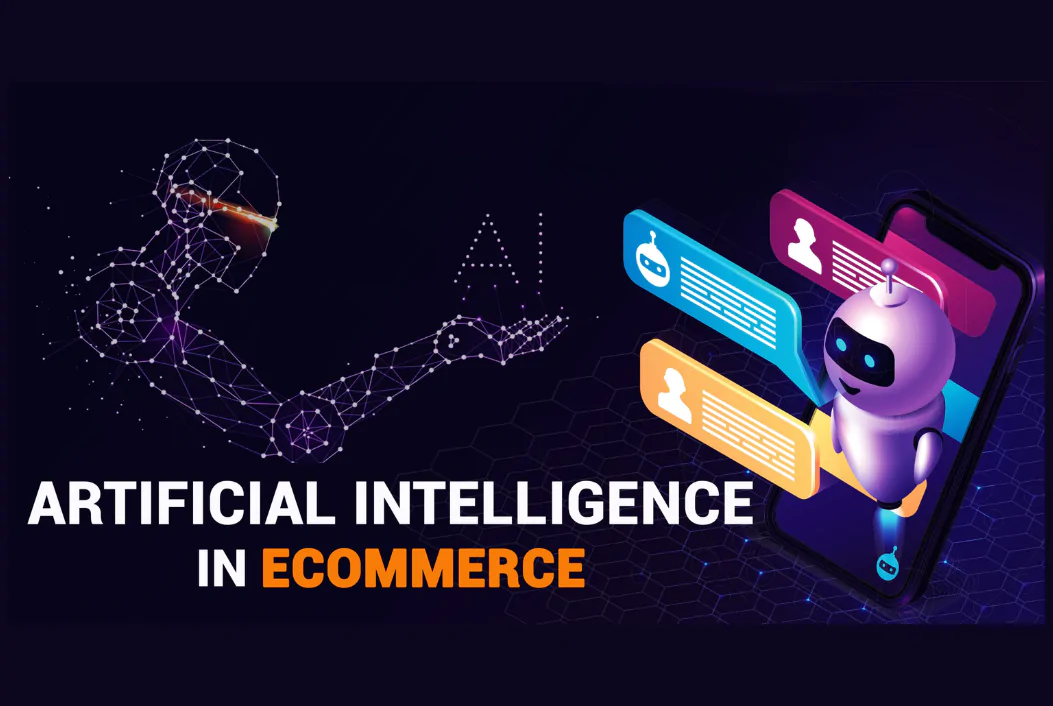
Artificial Intelligence helps a lot in making E-Commerce easy for People.
- Personalized Shopping
Recommendation engines are made possible by artificial intelligence technology, which helps you interact more effectively with your clients. Their browsing history, preferences, and interests are taken into consideration when making these recommendations. It enhances the bond between you and your clients and increases their fidelity to your business.
- AI-Powered Assistants
Chatbots and virtual shopping assistants both enhance the online shopping experience for users. In order to make the conversation sound as genuine and intimate as possible, natural language processing is used. Additionally, these helpers are able to interact with your clients in real time.
8. Applications of Artificial Intelligence in Lifestyle
Artificial Intelligence greatly impacts our way of life. Let’s talk about a couple of them.
- Autonomous Vehicles
Machine learning is being used by automakers such as Toyota, Audi, Volvo, and Tesla to teach computers to think and adapt like humans when it comes to driving in any kind of environment and detecting objects to prevent collisions.
- Spam Filters
AI in the email we use on a daily basis filters out spam emails, moving them to trash or spam folders so we only see the content that has been filtered. Gmail, a well-known email service, has achieved a filtration capacity of roughly 99.9%.
- Facial Recognition
Facial recognition techniques are used by our favorite gadgets, such as our phones, laptops, and PCs, to identify and detect faces in order to grant secure access.
9. Applications of Artificial Intelligence in Robotics
Another area where applications of artificial intelligence are frequently used is robotics. Artificial intelligence (AI)-powered robots use real-time updates to detect obstacles in their path and instantly plan their route.
It is applicable to:
- Transporting supplies in factories, hospitals, and warehouses
- sanitizing large machinery and offices
- Inventory control
10. Applications of Artificial Intelligence in Gaming
The gaming industry is one more area where AI applications have gained popularity. NPCs that are intelligent and human-like can be created using AI and communicate with players.
Additionally, it can be used to forecast human behavior, which can help with testing and game design.
Conclusion
In 2024, artificial intelligence is set to revolutionize various industries, transforming healthcare, transportation, education, customer service, and cybersecurity. The top 10 AI applications showcased the potential of AI to reshape the way we live, work, and interact with technology.
Learn More About AI Tools
FAQs
Q1: What are the primary benefits of integrating AI in healthcare?
Ans: Primary benefits of integrating AI in healthcare:
- Improved diagnosis and treatment accuracy
- Personalized medicine for better outcomes
- Streamlined operations and cost savings
- Predictive analytics for proactive interventions
Q2: How can businesses leverage AI to enhance customer experience?
Ans: Here are few points, how businesses can leverage AI to enhance customer experience:
- Personalization through data analysis
- Automation of customer support
- Predictive analytics for proactive assistance
- Feedback analysis for continuous improvement
Q3: What role does AI play in cybersecurity to prevent cyber threats?
The role of AI in cybersecurity to prevent cyber threats:
- Threat detection through data analysis
- Behavioral analysis for anomaly detection
- Vulnerability management and prioritization
- Automated response for rapid mitigation
